#science fiction realism
Text
BREW Readers' Choice Awardee for August 2022: "Homecoming" (Book 2 of the "Projects" Series) by Jude Austin
"Homecoming" - the second instalment of the "Projects" Series by multi-award-winning author Jude Austin - is August 2022's BREW Readers' Choice Award winner.
#TheChrysalisBREWProject
#awardwinner
#writerslift
#BookTwitter
#WritingCommunity
#bookawards
“Homecoming” – the second instalment of the “Projects” Series by multi-award-winning author Jude Austin – is August 2022’s BREW Readers’ Choice Award winner.
Know more about the BREW Readers’ Choice Award by clicking this link.
More about the author
View the book on Amazon.com
View the book on Amazon.com.au
Featured Book: “Homecoming” (Book 2 of the “Projects” Series) by Jude Austin…
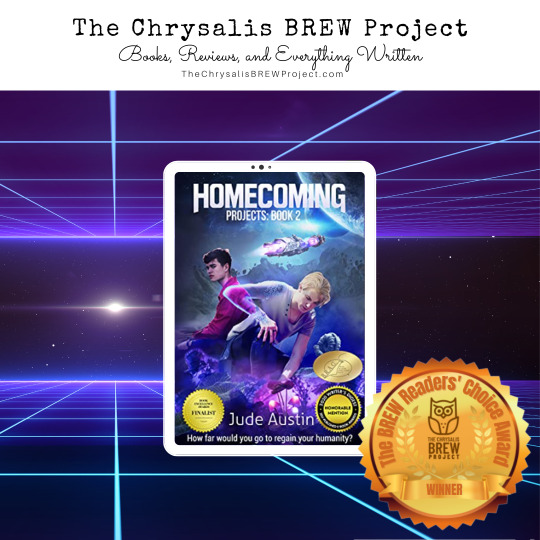
View On WordPress
#award winning book#books and life#featured#featured book#genetic engineering#science fiction#science fiction realism#scifi realism
0 notes
Text
You work with people from other dimensions for a living. While you can travel to other dimensions, it's much easier to just connect your computer to computers from other dimensions. You end up finding out about a lot of strange places, alternate earths where things are diffrent in ways you could never imagine. Most people don't even know other dimensions exist, but to you it all feels so normal, so very distant but so very normal.
Because the company that you work on interdimensional technology for needs to outsource some of its dimensional work you end up very quickly having to contact people from other dimensions with a similar skillset to you for one project. And since it's easy to contact them you end up talking to them afterwards.
There's this one girl you end up messaging a lot. She seems so nice and sweet. You talk a lot about programing, and mathematics and magic (which are all very closely connected fields), she's one of the only people who seems to really understand the beauty in it the way you do. She's obviously from a very diffrent culture, and you never sent eachother images, but you like eachother a lot.
You end up messaging this girl more and more. She's the first to comfort you when one of your freinds turned on you, she was the first to support you when you came out to your parents, even though she didn't fully know what coming out was. She messages you "I love you" in the mornings sometimes. And even though she's far away, further way than anything in the universe, you understand her so well. You've seen her art, drawings she's done of buildings and structures around where she lives, they're like nothing you've ever seen before.
You start to talk about being in a romantic relationship. It's hard but you decide it's what you should do, almost what you have to do. You want to be her girlfriend, you want to know how it feels to hug her, for her to rest her head on your breasts on a warm summer night, to be inside eachother, to touch in a way you don't get to touch. But you can still message eachother, it's just one small contact but it means so much. You want to move in with her, it might never happen but there's something inside of you that wants to wake up next to her every morning.
Eventually you decide to build a portal to eachother, so you can see eachother, and if all goes well, you'll actually move in. You both need to talk to a lot of people, and get help from a lot of programmers and spellcasters from several dimensions, but it's done. The money that was supposed to let you move into a bigger apartment ends up going to a doorway sized portal, stored one of the few buildings in the city that can store such things. You need to get a ticket to go, even though the portal is yourse it needs people to operate it. But you can go. And if all goes well, you'll live together.
When you get to her dimension the first thing you feel is fear. It's dark, you think your underground, only a few bioluminescent organisms light the way. The city you're in is wet, and cold yet humid, everything is made of either moist steel, or dark wood that's covered in some strange layer of material that feels like wet cardboard. The creatures here aren't human at all, they're all strange bug like and fish like beings.
You eventually go to your girlfriend's apartment. Afraid of what you'll see. It's completely dark inside, and decorated like no human would ever decorate anything. When you see your girlfriend for the first time the horror breaks the love you want to feel. Her body looks humanoid, though she's so thin you can see her ribs, and pale in a way only corpses are useally pale. Her face was almost pretty, but her eyes were one solid pinkish color, and her moulth was just a tiny hole, like a jawless fish, it couldn't move at all. And massive fleshy tentacles came from her back, four of them, with razor teeth at their ends, for chewing her food outside her body so that her tiny slit of a mouth can lap it up. You both just stand there, you realize that this is the girl you love, you realize you look as horrifying to her as she does to you. You begin to weep, and she doesn't understand what your eyes are doing.
You spend the night in her apartment. There's no way you're moving in together. You're not sure what this means. You don't want to look at her at first, but eventually you do. You realize if you have to go back to your world you do want to spend time with her. Your languages work so differently that you still need to use computers to talk to eachother, but you can talk to eachother. And you tell her that you're sorry, that you still want to be together.
You let her hug you, and comfort you, her body is so strange, but it becomes less scary when you fully realize that it's her your looking at, that that's who you've messaged all those nights. Despite her eyes and mouth her face is pretty, and though her body is much thinner then you expected she still moves gracefully. You let her touch you, every way she wanted to touch you, let her tentacles wrap around your body. She shows you her computer setup, and her favorite video games, and she even gets to introduce you to some of her freinds, and her little isopod like pet who really likes being pet by you. You can't help but feel uncomfortable in her dimension, but you feel safe with her, and despite everything you enjoy being held and touched by her. At the end of your stay you make love for the first time, you don't have the same genitals as her species, but you make it work. You fall asleep in her arms, and she would do the same to you, but her kind does not sleep.
When you go back home, because you do have to go back home, you don't tell many people, even people who know about dimensions, what happened where you went. But you still message her a lot, and when you can you visit her, and very rarely she'll visit you. Your mother would never approve, and no priest would marry you, but you can't help but fall into the feeling of her body next to yourse.
#196#my thougts#worldbuilding#writing#my worldbuilding#my writing#fantasy#urban fantasy#lesbian#wlw#queer romance#paranormal romance#monster fucker#monster lover#monster girl#magical realism#short fiction#short story#flash fiction#original fiction#tentacles#eldrich horror#eldritch#eldrich#eldritch horror#scifi#science fantasy#science fiction#sci fi#dimensions
77 notes
·
View notes
Text
Hard Sci-Fi is when you have megacorporations and aliens wanting to kill each other with railguns and our society has not changed centuries in the future, you can tell it's hard sci-fi because we have calculated both the power of railguns and that aliens would want to kill us so we need to have megacorporations to build railguns, it's just more (capitalist) realism.
#cosas mias#science fiction#society won't progress ever for centuries and we will all live in war and capitalism forever. this is hard realism.#sci fi
68 notes
·
View notes
Text
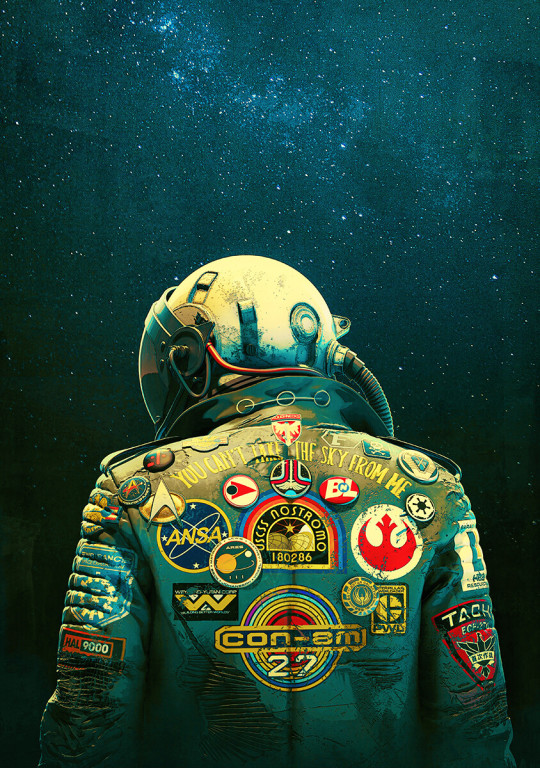






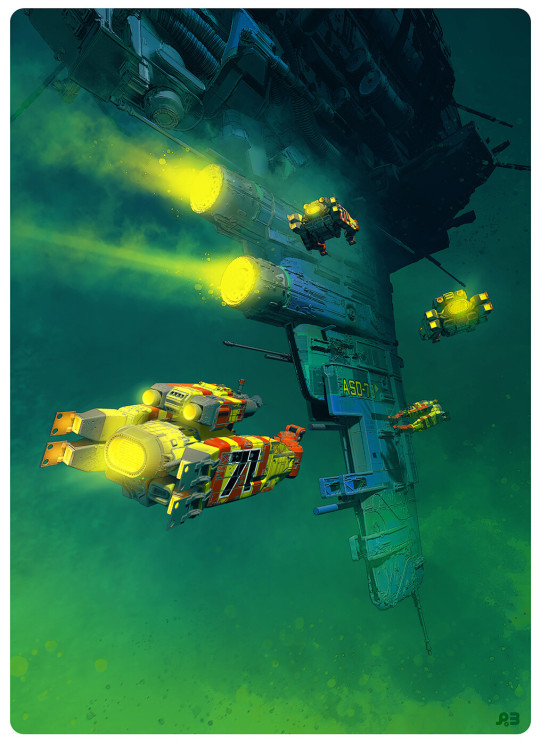

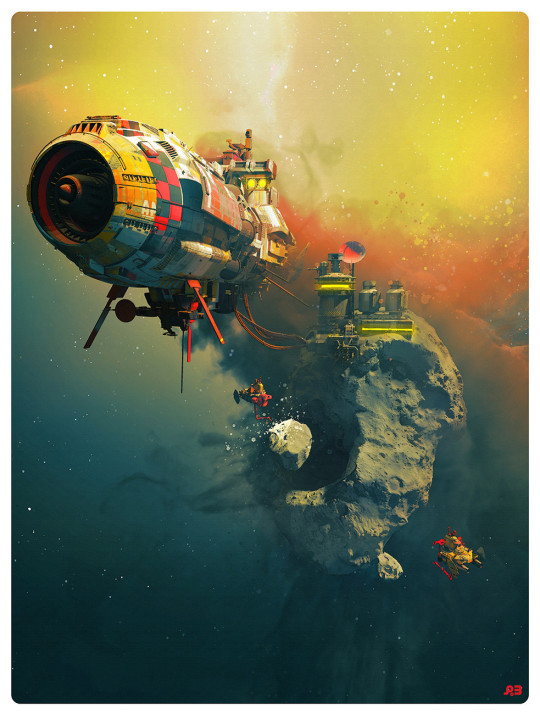

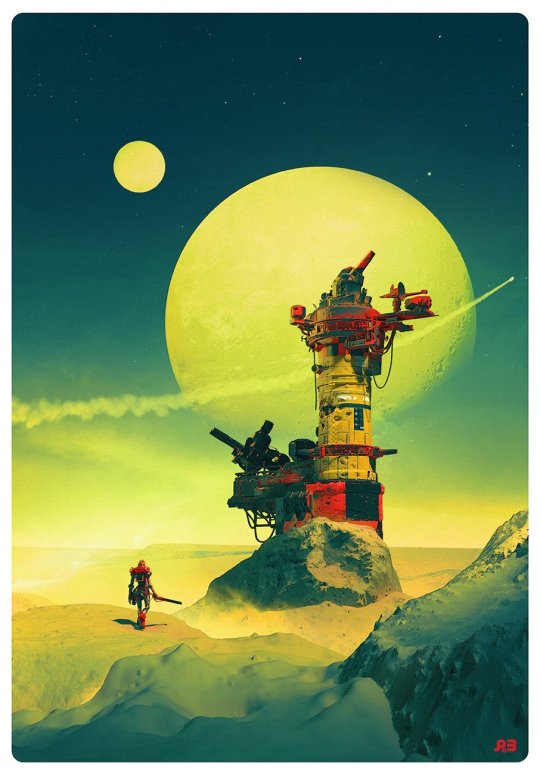
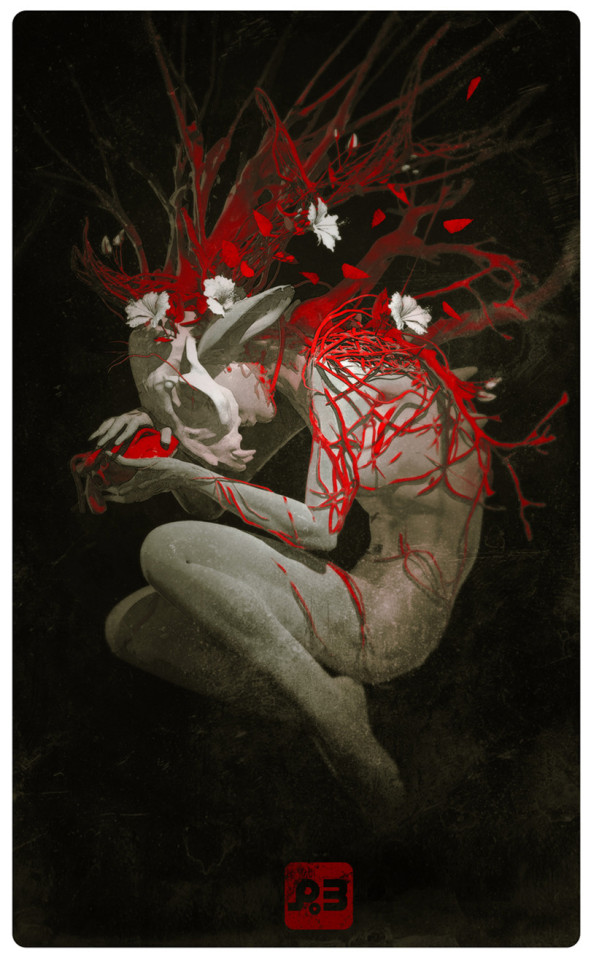
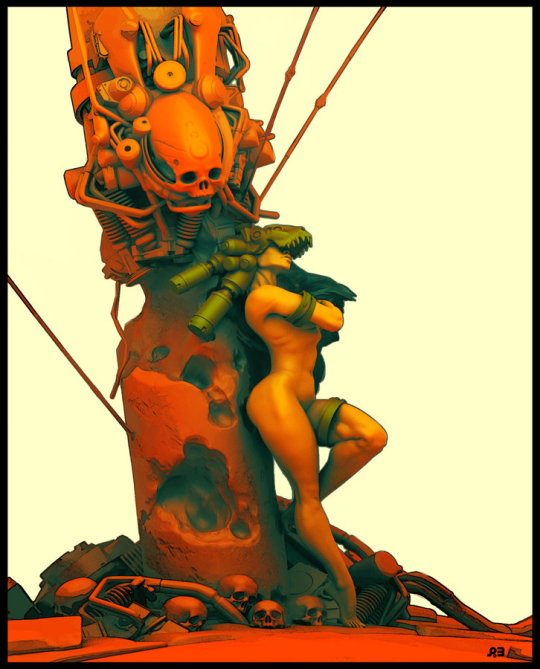


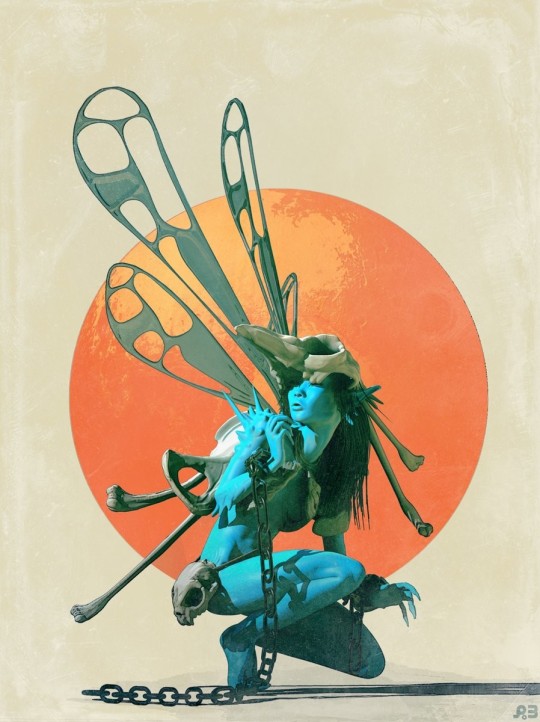

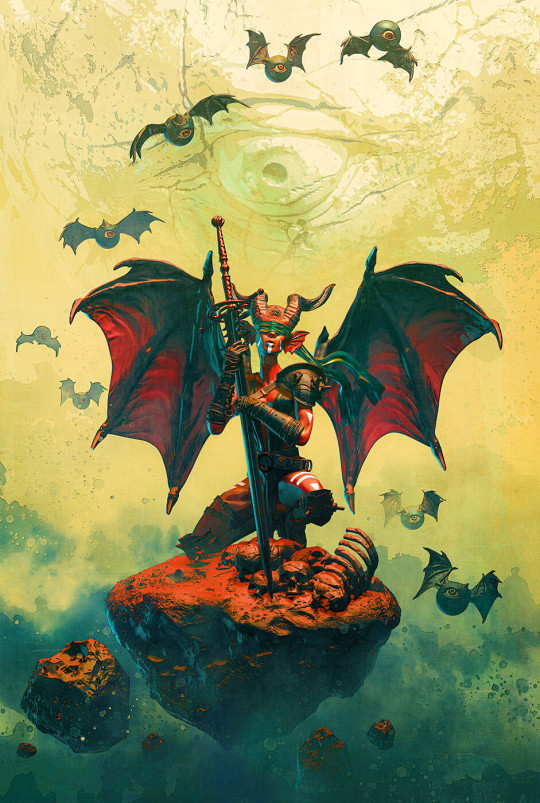


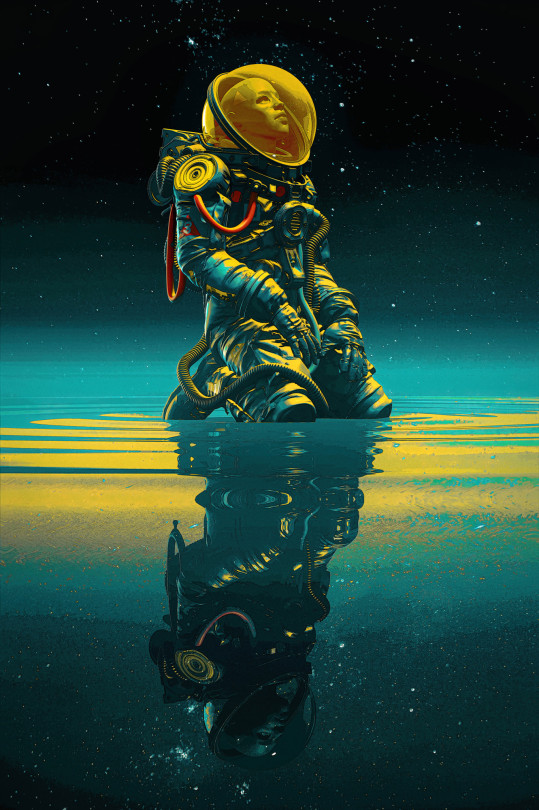
Showcasing art from some of my favourite artists, and those that have attracted my attention, in the field of visual arts, including vintage; pulp; pop culture; books and comics; concert posters; fantastical and imaginative realism; classical; contemporary; new contemporary; pop surrealism; conceptual and illustration.
The art of Pascal Blanché.
#Art#Pascal Blanche#Alien#Blade Runner 2049#Digital Art#Dune#Fantasy Art#Fantastical Art#Imaginative Realism#No AI Art#Sci Fi Art#Science Fiction Art
131 notes
·
View notes
Text
Molly McGhee’s “Jonathan Abernathy You Are Kind”
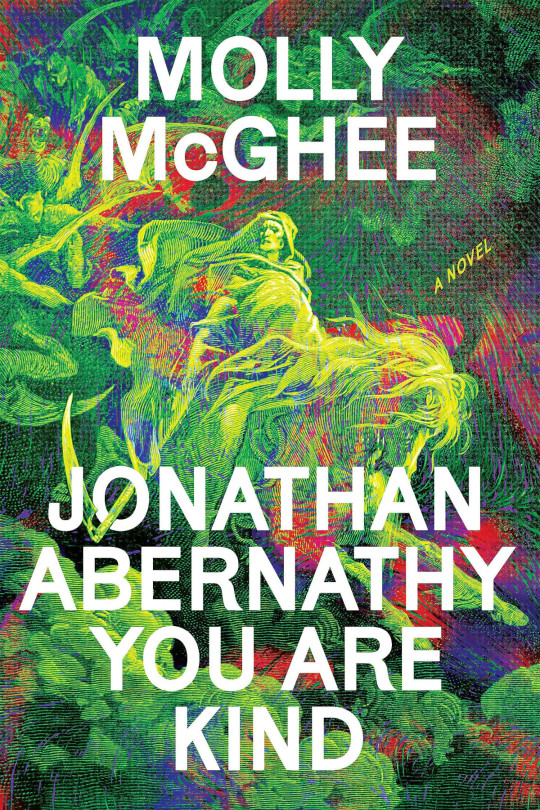
Jonathan Abernathy You Are Kind is Molly McGhee's debut novel: a dreamlike tale of a public-private partnership that hires the terminally endebted to invade the dreams of white-collar professionals and harvest the anxieties that prevent them from being fully productive members of the American corporate workforce:
https://www.penguinrandomhouse.com/books/734829/jonathan-abernathy-you-are-kind-by-molly-mcghee/
Though this is McGhee's first novel, she's already well known in literary circles. Her career has included stints at McSweeney's, where she worked on my book Information Doesn't Want To Be Free:
https://store.mcsweeneys.net/products/information-doesn-t-want-to-be-free
And then at Tor Books, where she worked on my book Attack Surface:
https://us.macmillan.com/books/9781250757531/attacksurface
But though McGhee is a shrewd and skilled editor, I think of her first and foremost as a writer, thanks to stunning essays like "America's Dead Souls," a 2021 Paris Review piece that described the experience of multigenerational debt in America in incandescent, pitiless prose:
https://www.theparisreview.org/blog/2021/05/17/americas-dead-souls/
McGhee's piece struck at the heart of something profoundly wrong in American society – the dual nature of debt, which represents a source of freedom for the wealthy, and bondage for workers:
https://pluralistic.net/2021/05/19/zombie-debt/#damnation
When billionaire mass-murderers like the Sacklers amass tens of billions of liabilities stemming from their role in deliberately starting the opioid crisis, the courts step in to relieve them of their obligations, allowing them to keep their blood-money:
https://pluralistic.net/2023/08/11/justice-delayed/#justice-redeemed
And when Silicon Valley Bank collapses due to mismanagement by ultra-wealthy financiers, the public purse yawns open and billions flow out to ensure that the wealthiest investors in the country stay whole:
https://pluralistic.net/2023/03/18/2-billion-here-2-billion-there/#socialism-for-the-rich
When predatory payday lenders target working people and force them into bankruptcy with four-digit APRs, the government intervenes…to save the lenders and keep workers on the hook:
https://pluralistic.net/2022/01/29/planned-obsolescence/#academic-fraud
"Debtor vs creditor" is the oldest class division we have. The Bronze Age custom of jubilee – the periodic cancellation of all debts – wasn't some weird peccadillo. It was essential public policy, and without jubilee, the hereditary creditor class became the arbiter of all social priorities, destabilizing great nations and even empires by directing production to suit their parochial needs. Societies that didn't practice jubilee (or halted it) collapsed:
https://pluralistic.net/2022/07/08/jubilant/#construire-des-passerelles
Today's workers are debt burdened at scales and in ways that defy comprehension, the numbers are so brain-breakingly large. Students who take out modest loans and pay them off several times over remain indebted decades later, with outstanding balances that vastly outstrip the principle:
https://pluralistic.net/2020/12/04/kawaski-trawick/#strike-debt
Workers who quit dead-end jobs are billed for five-figure "training repayment" bills that haunt them to the end of days:
https://pluralistic.net/2022/08/04/its-a-trap/#a-little-on-the-nose
Hospitals sue indigent patients at scale, siccing debt-collectors on people who can't pay – and were entitled to free care to begin with:
https://armandalegshow.com/episode/when-hospitals-sue-patients-part-2/
And debt collectors are drawn from the same social ranks as the debtors, barely trained and unsupervised, engaging in lawless, constant harassment of the debtor class:
https://pluralistic.net/2023/08/12/do-not-pay/#fair-debt-collection-practices-act
McGhee's "American Dead Souls" crystallized all of this vast injustice into a single, beautiful essay – and then McGhee crystallized things further by posting a public resignation letter enumerating the poor pay and working conditions in New York publishing, triggering mass, industry-wide resignations by similarly situated junior editorial staff:
https://electricliterature.com/molly-mcghee-jonathan-abernathy-you-are-kind-interview-debut-novel-book-debt/
Thus we arrive at McGhee's debut: a novel written by someone with a track record for gorgeous, brutally insightful prose; incisive analysis of the class war raging in the embers of capitalism's American Dream; and consequential labor organizing against the precarity and exploitation of young workers. As you might expect, it's fantastic.
Jonathan Abernathy is a 25 year old, debt haunted, desperately lonely man. An orphan with a mountain of college debt, Abernathy lives in a terrible basement apartment whose rent is just beyond his means. The only thing that propels him out of bed and into the world are his affirmations:
Jonathan Abernathy you are kind
You are well respected and valued by your community
People, including your family, love you
That these are all easily discerned lies is beside the point. Whatever gets you through the night.
We meet Jonathan as he is applying for a job that he was recruited for in a dream. As instructed in his dream, he presents himself at a shabby strip-mall office where an acerbic functionary behind scratched plexiglass takes his application and informs him that he is up for a gig run jointly by the US State Department and a consortium of large corporate employers. If he is accepted, all of his student debt repayments will be paused and he will no longer face wage garnishment. What's more, he'll be doing the job in his sleep, which means he'll be able to get a day job and pull a double income – what's not to like?
Jonathan's job is to enter the dreams of sleeping middle-management types in America's largest firms – but not just any dreams, their nightmares. Once he has entered their nightmare, Jonathan is charged with identifying the source of their anxiety and summoning a more senior operative who will suck up and whisk away that nagging spectre, thus rendering the worker a more productive component of their corporate structure.
But of course, there's more to it. As Jonathan works through his sleeping hours, he is deprived of his own dreams. Then there's the question of where those captive anxieties are ending up, and how they're being processed, and what new products can be made from refined nightmares. While Jonathan himself is pulling ever so slightly out of his economic quagmire, the people around him are still struggling.
McGhee braids together three strands: the palpable misery of being Jonathan (a proxy for all of us), the rising terror of the true nature of his employment, and beautifully turned absurdist touches that are laugh-aloud funny. This could be a mere novel of ennui and misery but it's not – it's a novel of hilarity and fear and misery, all mixed together in a glorious and terrible concoction that is not like anything else you've ever read.

If you'd like an essay-formatted version of this post to read or share, here's a link to it on pluralistic.net, my surveillance-free, ad-free, tracker-free blog:
https://pluralistic.net/2024/01/08/capitalist-surrealism/#productivity-hacks
#pluralistic#books#reviews#science fiction#molly mcghee#debt#graeber#capitalist realism#capitalist surrealism#dreams#gift guide
78 notes
·
View notes
Text
Okay, Tumblr - my friend Clara Ward has written an amazing book, Be the Sea. It has neurodivergent and queer rep - as in, the main character and pretty much all of the minor characters are some flavour of ND and queer. Reading it feels like you're making a journey over the Pacific Ocean yourself, with strong environmental themes and so much love for storytelling as a way to connect people.
Also, have I mentioned it looks gorgeous? That's an @mspencerdraws cover!

It is also a BIG BOI of a book and would for many people be easier to read as an audiobook. So that's what its publisher, Atthis Arts, is trying to produce, but since the world is only making it harder for indie publishers to survive, it's going to need a boost.
The campaign for the audiobook (and a hardcover edition!) will launch on June 14 with a pay-what-you-can reward level starting at $1 (!). But you can help even now, at no cost at all, by just clicking the "notify" button on this page so the campaign will be picked up by the algorithms right from the start.
Please, please spread the word! I really want this to be big, both to support my friend and to make important stories like these reach a bigger audience. I honestly feel like the world can use more of them.
Thank you!
#be the sea#environmental fiction#science fiction#magic realism#ocean#signal boost#clara ward#atthis arts#neurodivergent#queer#non-binary#asexual
51 notes
·
View notes
Text

Commissioned artwork || Destiny 2
If you like what you see and want to look into commissioning me you can visit my artistree profile!
#digital art#my artworks#art#illustration#commission#destiny 2#realism#space#scifi#sci fi art#science fiction#futuristic
30 notes
·
View notes
Text
Welcome, readers and writers! The theme this month is Lawless Librarians–or any other historian, archivist, book binder, or secret romance novel enthusiast 🤠 📚 👀
Full list of titles, authors, and blurbs below the cut!
The Sound of Stars by Alechia Dow
YA Sci-Fi Dystopia; fat black demisexual female MC with anxiety goes on a road trip with an alien to save her illegal books
*The Perks of Loving a Wallflower by Erica Ridley
Adult Historical Romance; nonbinary grifter teams up with a demisexual High Society lady to rescue a priceless manuscript and decode a military cipher
The Binding by Bridget Collins
Adult Fantasy / Historical; a gay book binder who seals painful memories in the pages of his books falls in love with a Lord seeking his services
Meet Cute Club by Jack Harbon
Adult Romance; a black man with anxiety running a romance book club can’t afford to turn down new members–even his obnoxious bookstore rival
*Dead Collections by Isaac Fellman
Adult Paranormal; a Jewish vampire archivist falls in love with the genderfluid widow donating new papers, but strange things start happening within the collection …
Sorcery of Thorns by Margaret Robinson
YA Fantasy; a library warden guarding against magical grimoire-beasts must team up with a hated bisexual sorcerer when a monstrous book is accidentally set free
The Deep by Rivers Solomon
Adult Fantasy; an autistic mermaid must serve as the Historian for her people, the descendents of slaves tossed from ships–but instead she flees to the surface, forming a bond with a human woman
The Starless Sea by Erin Morgenstern
Adult Fantasy; a gay man discovers an ancient library hidden beneath the surface of the earth …
The Library of the Unwritten by A. J. Hackwith
Adult Fantasy; a pansexual woman serving as the Head Librarian in Hell must track down a Hero who has escaped from his book in search of his Author
*Archivist Wasp by Nicole Kornher-Stace
Adult Fantasy / Sci-Fi; an aro-ace woman fights to remain the Archivist of ghosts in post-apocalyptic world, until she discovers one that can talk …
Upright Women Wanted by Sarah Gailey
Adult Western; a pansexual woman stows away in the Librarian’s book wagon to escape marriage
*titles with an asterisk have been featured as a Daily Book on my wordpress blog, and the link leads to that post
#YA books#adult books#alt history#fantasy#historical fiction#magical realism#paranormal#romance#sci fi books#science fiction#enemies to lovers#fake dating#fiction#lgbt fiction#lgbtqia#bookblr#themed list
43 notes
·
View notes
Text

Recently I watched the movie Nope, and I loved it so much! It’s probably one of my new favorites, and if I had to pick a favorite character it would have to be Jupe! I’ve been dealing with some art block, but then I remembered something about using a screencap of a scene in a movie to create a color study! So that’s what I did, with one of my favorite scenes in Nope. The eyes were definitely a struggle, but I’m happy with what I managed to create. The suit is definitely my favorite part of this piece-
Here’s the scene in the movie for comparison:

Can we also just agree Steven Yeun kills it in this cowboy getup?? Like hello-
#color study#nope movie#jordan peele#steven yeun#jupe nope#ricky jupe park#nope jordan peele#my art#artists on tumblr#fanart#procreate#digitalart#semi realism#lineless art#color stuff#art study#style study#science fiction#horror movies#sci fi movies
22 notes
·
View notes
Text
A thing I see a lot of writers do when worldbuilding is try to make their world clean and pure and devoid of every modern social problem or ism - except for the one bad thing that is the root of all the problems, and if the MC just fixes that *one thing* which just...isn't how society works.
If you look at these worlds closely, there are still usually inherent flaws that have nothing to do with the big bad, and can very well be reflections of our own society, placed there either consciously or unconsciously. And there is nothing wrong with this as long as you don't die on a hill of saying how your world is so enlightened and perfect except for this One Thing. It can actually be a good thing, reflecting humanity in a more realistic light.
Conversely, if you're writing dystopian or just gritty realism, don't forget the light, the good things, the good people. Humanity wouldn't survive if everything was awful. There are moments of joy, things worth living for.
So yeah, it's ok to have the MC take on the big bad king - and his death ultimately solves a lot of things - but not the rampant classism in MC's society - a lingering side effect of the big bad's regime that will take generations to alleviate.
There can be side struggles in a characters world that have nothing to do with the main conflict, because life is so damn full of side struggles and sometimes you just have to triage.
There can be joys and even good policy decisions in a dystopian hellscape, because no amount of universal healthcare will make up for the fact your government is torturing and imprisoning random people and your father has been hauled off the the mines or some shit.
People will get it. They'll appreciate all the grey areas of humanity.
#writing#worldbuilding#dystopian#fantasy#science fiction#i love a story in which everyone lived happily ever after after the villain is defeated too#but if you're looking for realism or an accurate reflection of humanity or just something that is moderately believable and not boring#maybe you need some world dimension
7 notes
·
View notes
Text
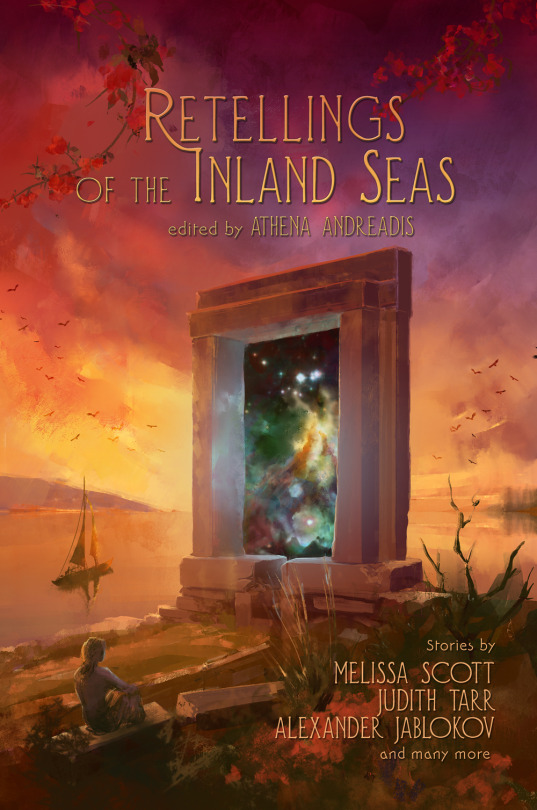
The cover for Retellings of the Inland Seas, an anthology published by Candlemark & Gleam

Alternate wraparound available on INPRNT.
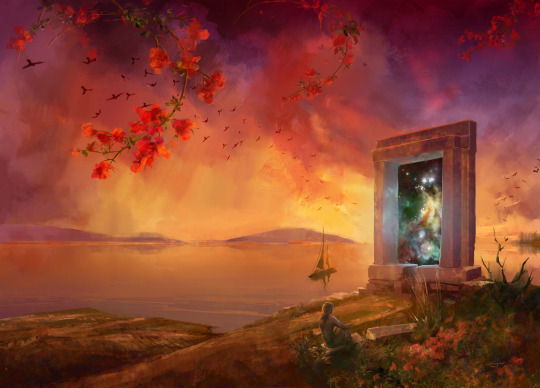
#art#artists on tumblr#illustration#book cover#aegean#gate#space#nebula#magical realism#fantasy#science fiction#digital painting
7 notes
·
View notes
Text
Featured Book: "Homecoming" (Book 2 of the "Projects" Series) by Jude Austin
Featured Book: "Homecoming" (Book 2 of the "Projects" Series) by Jude Austin
@JudeAustin18
#TheChrysalisBREWProject
#writerslift
#sciencefiction
#scifirealism
#WritingCommunity
#ReadingCommunity
#bookrecommendations
“Homecoming” by Jude Austin is a sci-fi realism book, meaning there’s very little in the way of traditional sci-fi. No AI/robots, no alien diplomacy, no dystopia, no epic space battles; just people living on other planets in the future. This serves to make the book accessible to people who would normally avoid sci-fi as a genre; it’s all about the culture and characters, not the science!
Book…
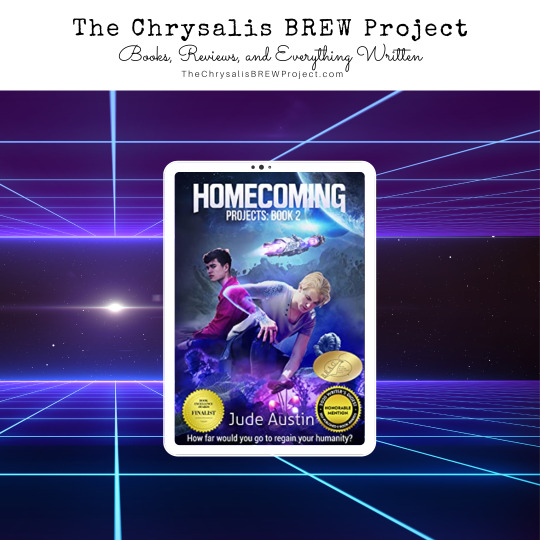
View On WordPress
#award winning book#books and life#featured#featured book#genetic engineering#science fiction#science fiction realism#scifi realism
0 notes
Text
Imagine being a oracle in the ancient world, given visions of a future you cannot know. Everyone comes to you asking about things that matter to them, wars that will be won or lost, children that will be born. But you're cursed to see further then that. You see things you can't comprehend, a billion possible futures branching out from every momment. You can see the temples of the gods laying empty and barbarians ravaging the known world. You can see man made horrors beyond your comprehension, empires larger then anyone could imagine. You know of artifical intelligence, or nuclear war, of climate change. And you can't even describe any of it to most people. Starships fighting over black skies, humans twisted apart and put back together by machines, and nobody around you can even try to know.
Most people prefer false oracles, that tell them only of things they understand. While you only discuss what you know with a few scholars and philosophers who are terrified to understand the futures you can see.
#196#my thougts#fantasy#history#oracle#my writing#ancient athens#ancient greek#ancient rome#ancient greece#magical realism#magic#short fiction#flash fiction#horror#psychological horror#science fiction
156 notes
·
View notes
Text
Middle age was a moving target, something only accurately calculated in hindsight. Sometimes, you die at twenty-five and realize that twelve was your midpoint, over the hill before acne came calling. Sometimes, you stumble into madly scientific immortality at eighty and realize that you are still but a neophyte, learning the ropes again with arthritic knuckles and reading glasses.
2 notes
·
View notes
Text

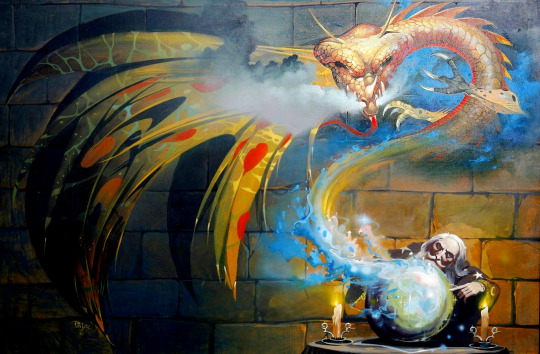

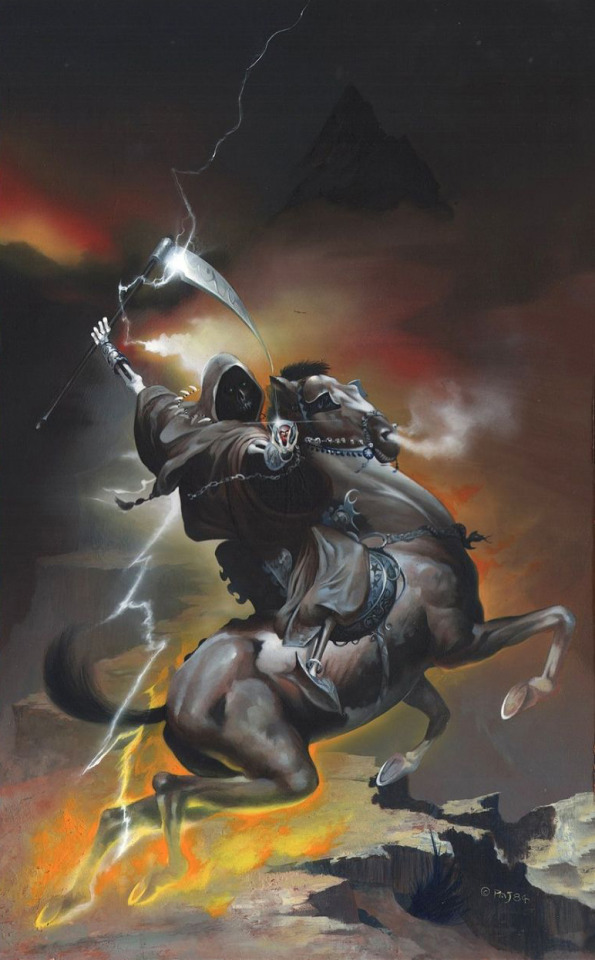
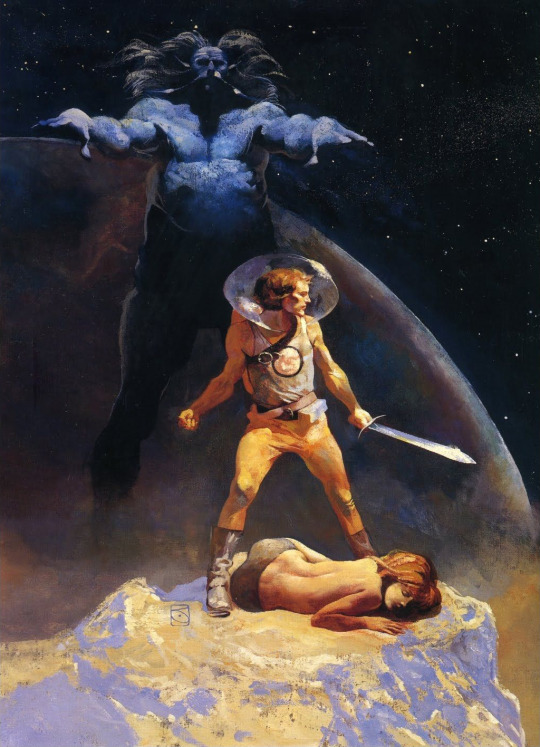
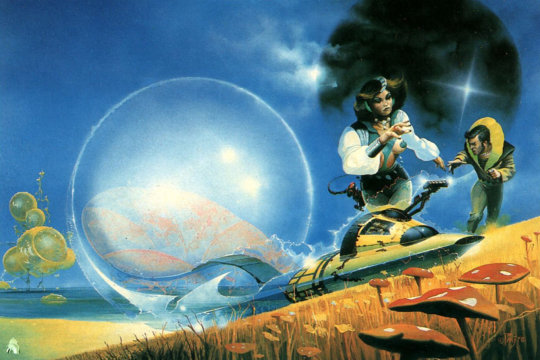
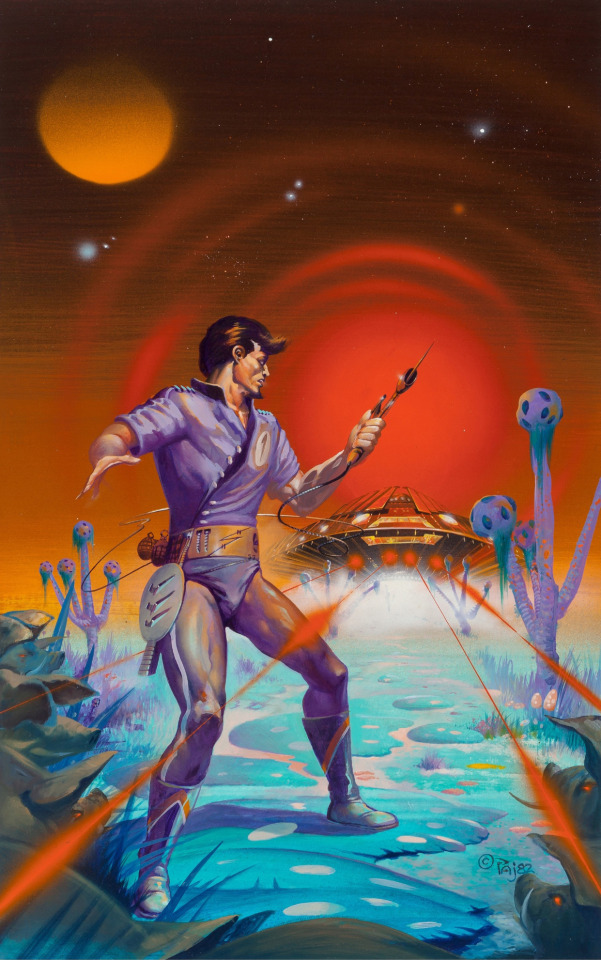
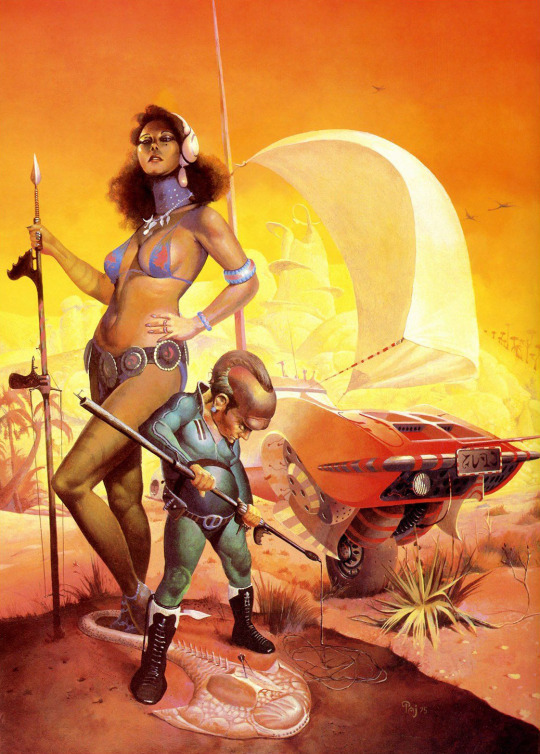

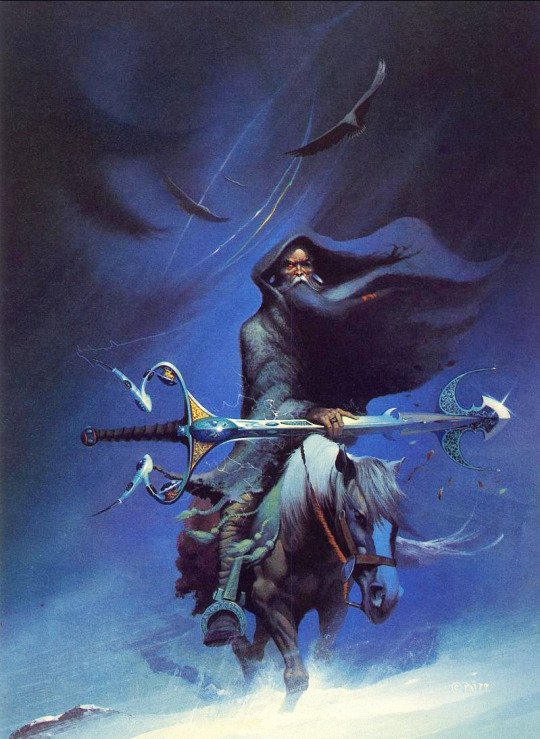
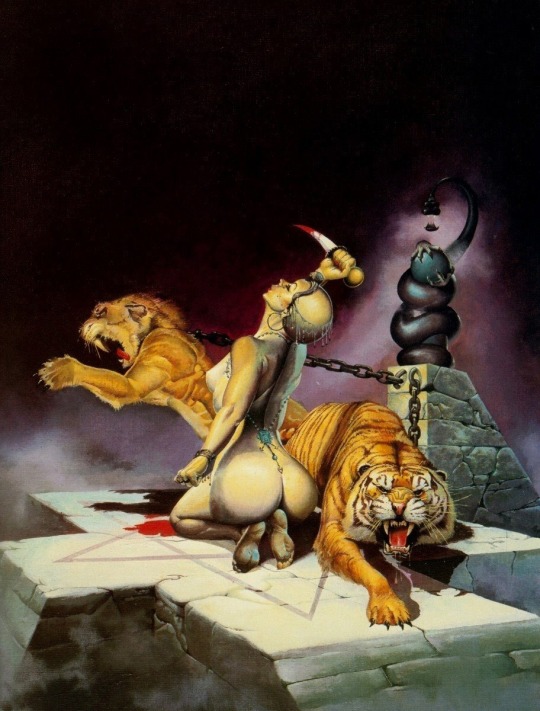
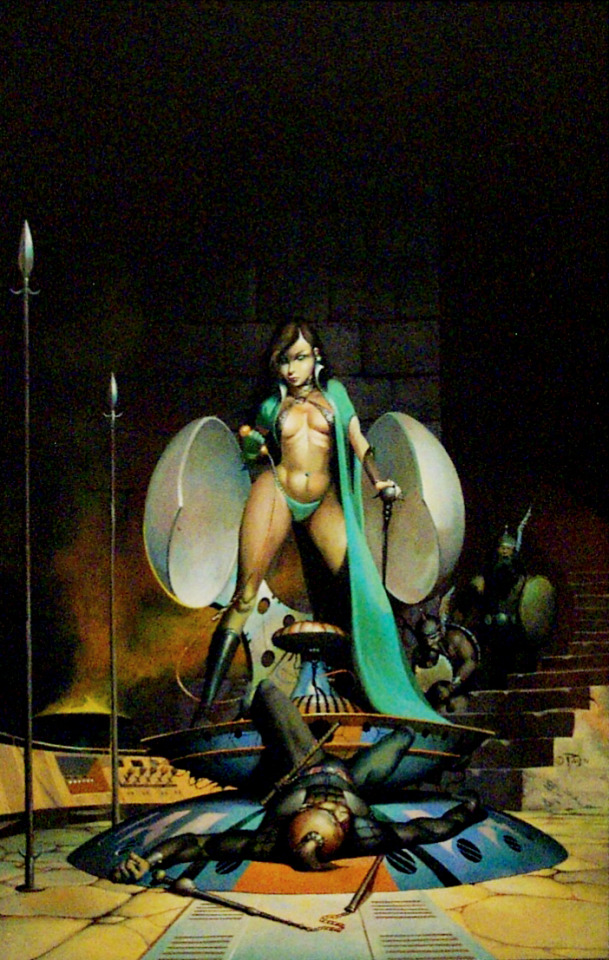
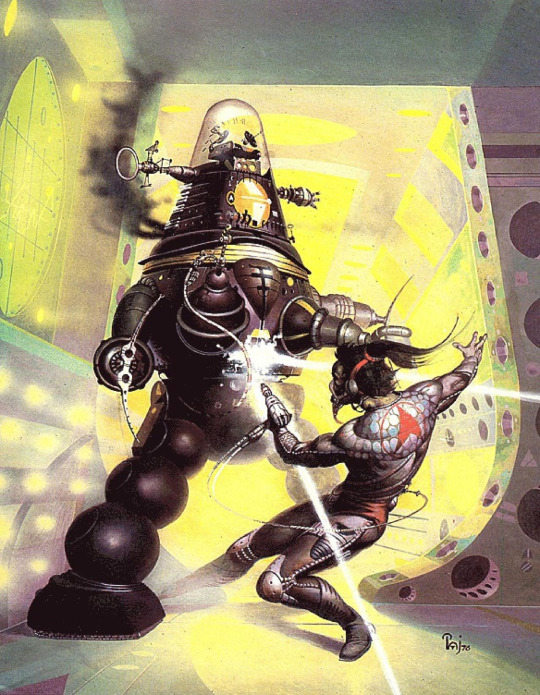

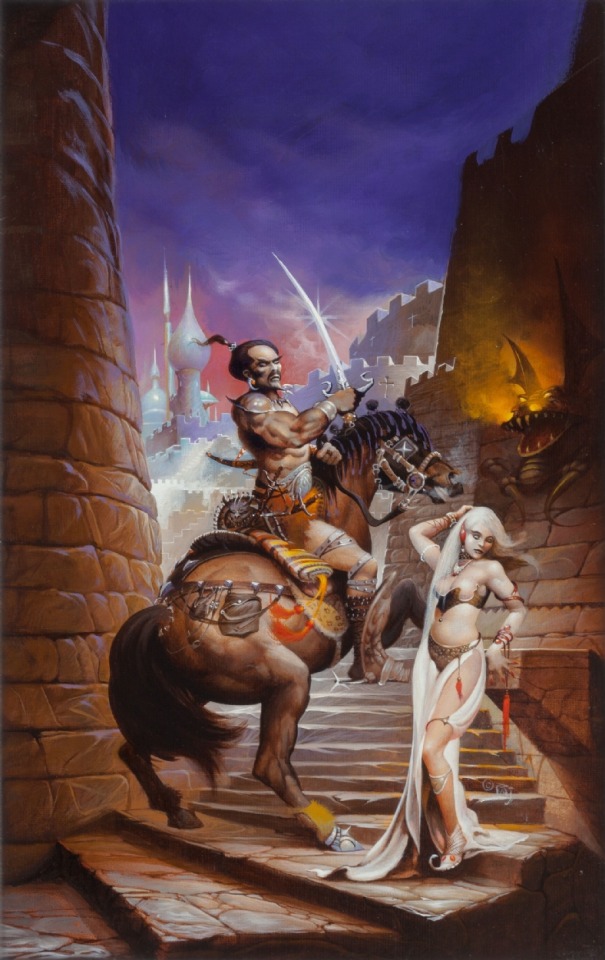
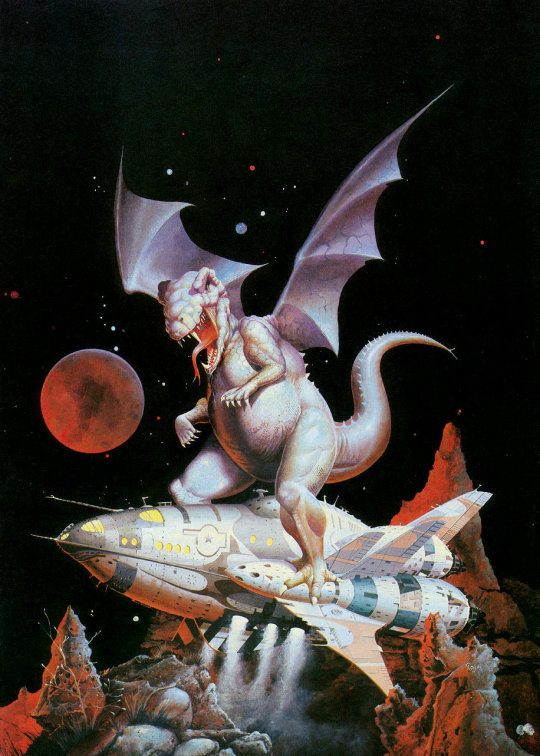


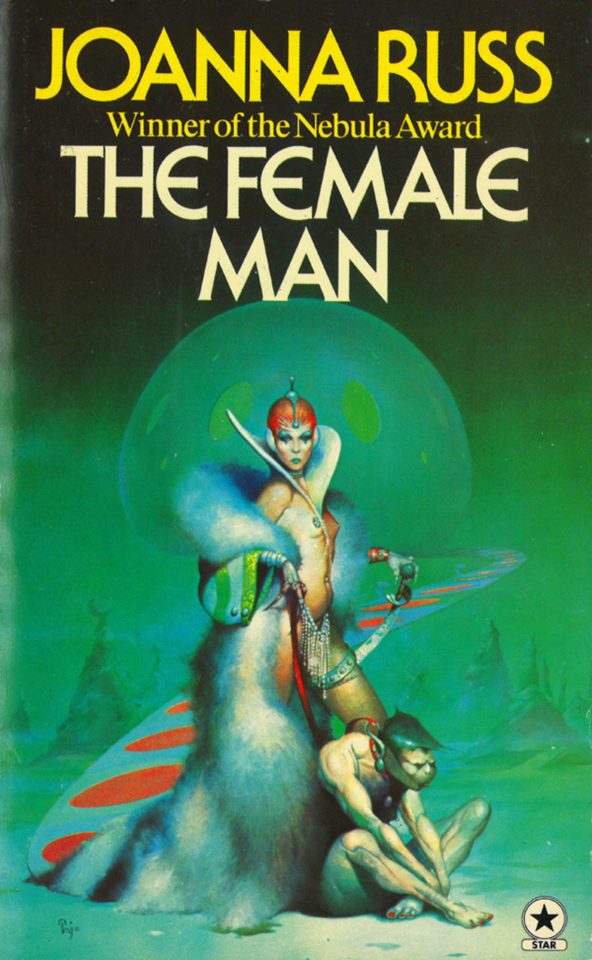



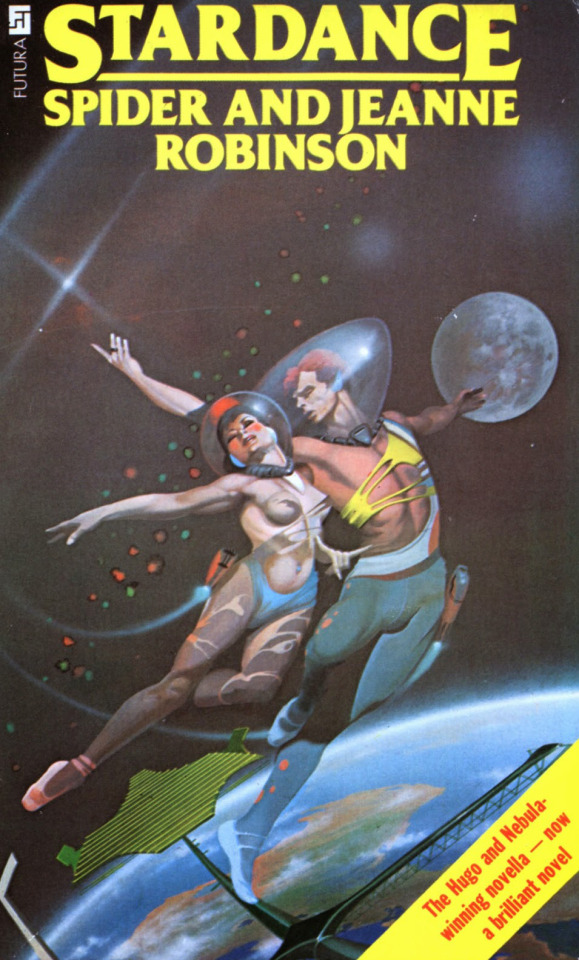

Showcasing art from some of my favourite artists, and those that have attracted my attention, in the field of visual arts, including vintage; pulp; pop culture; books and comics; concert posters; fantastical and imaginative realism; classical; contemporary; new contemporary; pop surrealism; conceptual and illustration.
The art of Peter Andrew Jones.
#Art#Peter Andrew Jones#Fantasy Art#Fantastical Art#Imaginative Realism#Sci-Fi#Science Fiction#Sci-Fi Art#Books#Book Cover#Book Cover Art#Cover Art#Fighting Fantasy#Frank Herbert#Robert A Heinlein#Larry Niven#Joan D Vinge#The Sword And The Sorcerer
47 notes
·
View notes
Text
Ian McDonald's "Hopeland"
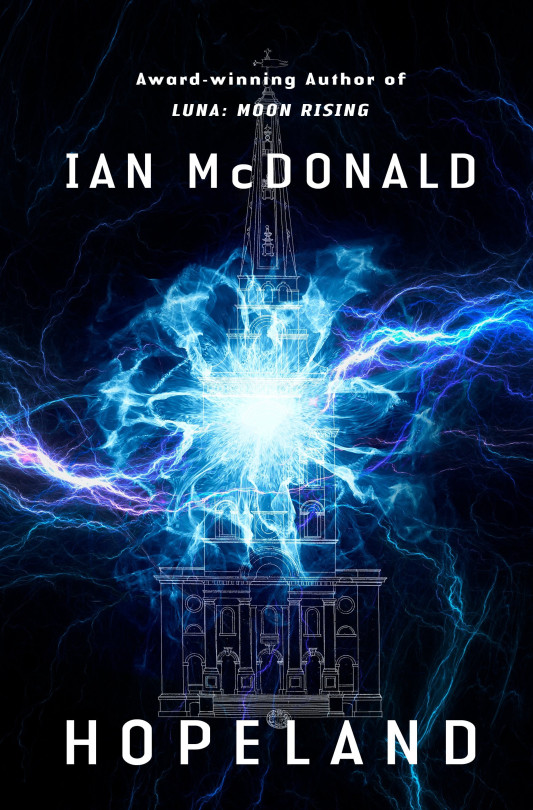
Tonight (May 30) at 6:30PM, I’m at the NOTTINGHAM Waterstones with my novel Red Team Blues, hosted by Christian Reilly (MMT Podcast).
Tomorrow (May 31) at 6:30PM, I’m at the MANCHESTER Waterstones, hosted by Ian Forrester.
Then it’s London, Edinburgh, and Berlin!

Have you ever read a novel that was so good you almost felt angry at it? I mean, maybe that’s just me, but there is one author who consistently triggers my literary pleasure centers so hard that I get spillover into all my other senses, and that’s Ian McDonald, who has a new novel out: Hopeland:
https://us.macmillan.com/books/9780765375551/hopeland
Seriously what the fuck is this amazing, uncategorizable, unsummarizable, weird, sprawling, hairball of a novel? How the hell do you research — much less write — a novel this ambitious and wide-ranging? Why did I find myself weeping uncontrollably on a train yesterday as I finished it, literally squeezing my chest over my heart as it broke and sang at the same moment?
Hopeland is a climate novel, and it’s not McDonald’s first. Hearts, Hands and Voices (published in the US as The Broken Land) is a climate novel (that also happens to be about the Irish Troubles). So is his stunning debut, Desolation Road, which I picked up at a mall bookstore in 1988 and lost my mind over:
https://memex.craphound.com/2009/07/02/ian-mcdonalds-brilliant-mars-book-desolation-road-finally-back-in-print/
But those were climate novels written in the early stages of the discussion of the gravity of the anthropocene, and so climate change was more setting than anything else. In Hopeland, the climate is more of a character — not a protagonist, but also not a minor character.
The true stars of Hopeland are members of two ancient, secret societies. There’s Raisa Hopeland, who belongs to a globe-spanning, mystical “family,” that’s one part mutual aid, one part dance music subculture, and one part sorcerer (some Hopelanders are electromancers, making strange, powerful magic with Tesla coils).
We meet Raisa as she is racing across London in a bid to win a rare, open electromancer title. She is on the brink of losing, but then a passerby pitches in to help: Amon Brightborne, part of another mystical family whose stately, odd manor in the English countryside can only be reached by people who can work the “gateway,” which makes the road disappear and reappear. Amon is a composer and DJ who specializes in making music for very small groups of people — preferably just one person — that is so perfect for them that they are transformed by hearing it.
Amon’s intervention in Raisa’s bid for electromancy unites these two formerly disjoint families, entwining their destinies just as the world is forever changing, thanks to the decidedly un-magical buildup of CO2 and other greenhouse gasses in our atmosphere. They have a romance, a breakup, a child. They are scattered to opposite ends of the Earth — Iceland and a tiny Polynesian island.
Their lives are electrified. Literally. On her passage to Iceland, Raisa confronts a ship-destroying megastorm, speaks its true name, and sends it away before it can sink the container ship — captained by a Hopelander who gives her free passage — that she is sailing on. In Iceland, she falls in with more Hopelanders, tapping a thermal vent to create a greenhouse cannabis farm, which begets a luxury salad greens business, then an electricity plant that attracts cryptocurrency weirdos like shit draws flies.
Amon, meanwhile, is sinking into drunken ruin on his island paradise, where he becomes a kind of mascot for the locals, who respect his musical prowess. The island is sinking, both figuratively and literally, as its offshore king, hiding in a luxury mansion in Sydney, drains its aquifers for the luxury bottled water market and loots its treasuries to fund his own high lifestyle.
McDonald takes a long time getting to this point. This is a 500 page novel, and the build to this setup takes nearly 300 of them. Every word of that setup is gold. McDonald’s prose often veers into poetry, or at least poesie, and he has this knack for seemingly superfluous vignettes and detours that present as self-indulgences but then snap into place later as critical pieces of a superbly turned narrative. How the fuck does he do it?
How does he do it? How does he deliver a sense of such vastness, a world peopled by vastly different polities and populations, distinctly different without ever being exoticized, each clearly the hero of their own story, whether they live on a tiny island or captain an American battleship?
I mean, cyberpunk — the tradition McDonald most obviously belongs to — was always about a post-American future, but no one ever managed it the way McDonald did. He delivered a superb, complex, Indian future in 2004’s River of Gods:
https://memex.craphound.com/2004/06/12/ian-mcdonalds-brilliant-new-novel-river-of-gods-bollywoodpunk/
And then did the same in Brazil with 2007’s Brasyl:
https://memex.craphound.com/2007/04/30/ian-mcdonalds-brasyl-mind-altering-cyberpunk-carioca/
And Turkey in 2011’s Dervish House, a novel of mystical nanofuturism set in an Istanbul that is so vividly drawn that you feel like you can reach through the page and touch it:
https://memex.craphound.com/2010/07/12/ian-mcdonalds-dervish-house-superb-novel-of-the-mystical-nano-future-of-istanbul/
Those were ambitious books, but Hopeland puts them to shame. It draws on so many threads — music and art, climate justice, mysticism, electrical engineering, economics, gender politics — and has such a huge cast of finely drawn characters. By all rights, it should collapse under its own weight. I mean, seriously — who can write multi-page passages describing imaginary music and make it riveting?
McDonald is just so damned good at writing love-letters to places that turn them into characters in their own right. The first third of Hopeland treats London that way, bringing it to gritty life in the manner of Michael de Larrabeiti’s classic Borribles trilogy:
https://memex.craphound.com/2014/01/16/the-borribles-are-back/
Or, for that matter, China Miéville’s debut novel King Rat, itself out in a fancy new Tor Essentials edition with an introduction by Tim Maughan, who absolutely bullseyes the appeal of Miéville’s novel of underground music, mystical societies and urbanism:
https://us.macmillan.com/books/9781250862501/kingrat
(It shouldn’t surprise you to learn that Miéville is a giant Borribles fan:)
https://www.tor.com/2014/03/13/the-borribles-excerpt-introduction-china-mieville/
I have loved Ian McDonald’s work since I picked up Desolation Road in that mall bookstore when I was 17. One of the absolute highlights of my writing career was writing an introduction for the 2014 reissue of Out On Blue Six, a book that mashes up David Byrne’s solo projects, Orwell’s Nineteen Eighty-Four, Huxley’s Brave New World, and Dick’s Do Androids Dream in a madcap dystopian comedy:
https://memex.craphound.com/2014/01/20/out-on-blue-six-ian-mcdonalds-brilliant-novel-is-back/
I’ve read everything I could find about how he manages these giant, weird, intricately constructed novels, like this fascinating 2010 interview about his research process:
https://web.archive.org/web/20100726181934/http://www.cclapcenter.com/2010/07/an_interview_with_ian_mcdonald.html
But despite it all, I find myself continuously baffled by how manages it, but each book just stabs me. For one thing, he’s such a good remix artist. His three-volume, essential retelling of Heinlein’s The Moon Is a Harsh Mistress starts with Luna: New Moon (2015):
https://memex.craphound.com/2015/09/22/ian-mcdonalds-luna-new-moon-the-moon-is-a-much-much-harsher-mistress/
Which substantially out-Heinleins Heinlein, adding thickness and rigor to the tropes Heinlein tossed in as throwaways. Then, he topped himself with the sequel, Luna: Wolf Moon (2017):
https://memex.craphound.com/2017/03/28/ian-mcdonald-returns-to-the-harshest-mistress-in-luna-wolf-moon/
Before bringing it all in for a screaming landing that tied up the hundreds of threads he pulled on in the course of the previous two volumes with the conclusion, Luna: Moon Rising (2019):
https://memex.craphound.com/2019/05/16/luna-moon-rising-in-which-ian-mcdonald-brings-the-trilogy-to-an-astounding-intricate-exciting-and-satisfying-climax/
In each volume, McDonald proved — over and over — that he understood precisely what Heinlein was trying to do, then outdid him, and, in so doing, shredded Heinlein’s solipsitic, simplistic, seductive argument about a libertarian utopia.
Perhaps this is McDonald’s greatest gift: his ability to rework others’ ideas, tropes and tales, without ever trying to hide his influences, and then vastly outdoing them. That’s certainly what was going on with his wild-ass, deiselpunk YA trilogy, which started with 2011’s Planesrunner:
https://memex.craphound.com/2011/12/06/planesrunner-ian-mcdonalds-ya-debut-is-full-of-action-packed-multidimensional-cool-airships-electropunk-and-quantum-physics/
One important McDonaldism: being deadly serious about his whimsy. The books are all very whimsical, but never frivolous. To get a sense of what I mean here, consider his 1992 graphic novel Kling Klang Klatch, a deadly serious comic book about the Klu Klux Klan, told entirely through adorable teddybears in a noir cityscape, whose dialog is heavily salted with Tom Waits lyrics:
https://memex.craphound.com/2004/01/24/ian-mcdonalds-kling-klang-klatch/
No, really. And it’s fantastic.
Back to Hopeland. It’s a climate novel, because what else could you write in this time of polycrisis? The book is vast enough to convey the scale of the crisis. The storms that ravage the world are both personified and realized, a terror to compare to any literary monster or Cthuhoid entity. But it’s called Hopeland for a reason, because it’s a book about hope, not nihilism, a book about confronting the crisis, a book about solidarity and love, about overcoming difference, about challenging the way things “just are.”
That’s why I was crying and holding my heart yesterday on the train. The hope. What a ride.
One of the reasons I was in such a hurry to read this novel now is that I’m appearing on a panel with McDonald this coming Saturday, June 3, at Edinburgh’s Cymera festival, along with Nina Allen, author of the new novel Conquest:
https://www.cymerafestival.co.uk/cymera23-events/2023/4/4/connection-interrupted-with-nina-allan-cory-doctorow-and-ian-mcdonald
I’m so looking forward to it. I’ve written a couple dozen books since I read my first McDonald novel as a teenager, and while I still have no idea how McDonald does it, there’s something of his work in every one of my books.
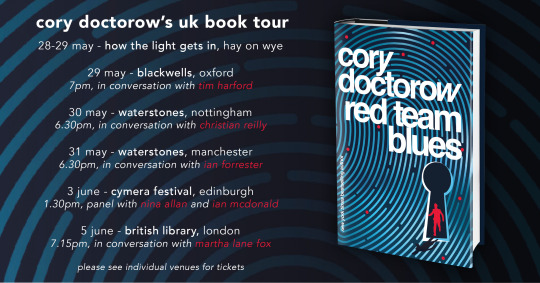
Catch me on tour with Red Team Blues in Nottingham, Manchester, London, and Berlin!

If you'd like an essay-formatted version of this thread to read or share, here's a link to it on pluralistic.net, my surveillance-free, ad-free, tracker-free blog:
https://pluralistic.net/2023/05/30/electromancy/#the-grace

[Image ID: The cover for the Tor Books edition of 'Hopeland.']
#pluralistic#ian mcdonald#electromancy#science fiction#sf#books#reviews#hopepunk#cli-fi#climate#climate change#climate emergency#poesie#worldbuilding#magic tricks#magic realism#gift guide
46 notes
·
View notes